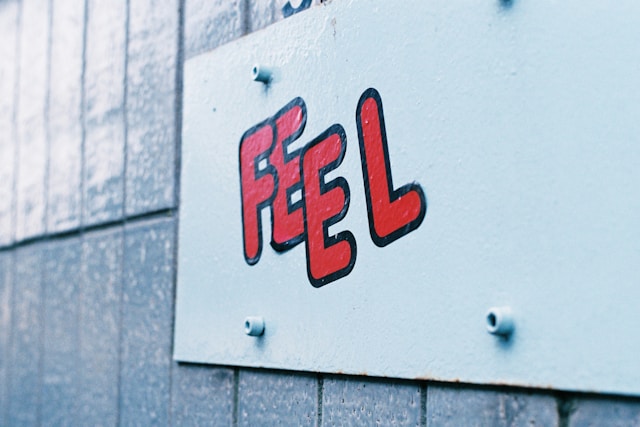Photo by Becca Tapert
When it comes to understanding what it means to live fully and authentically, author Chet Shupe offers a bold perspective in his book Rediscovering the Wisdom of Human Nature.
His work invites readers to look past the noise of modern civilization and return to more ancient truths that once guided humanity. One of these forgotten values is the true embrace of freedom. This isn’t just political or social freedom. This was one of the core spiritual tenets that once guided humans for thousands of years. To step inside Chet Shupe’s vision is to see life as it was intended. It’s a vision where love, connection, and purpose flow naturally.
Reclaiming the Roots of Human Connection
Modern society is rife with contradictions. On the one hand, its economic structures emphasize achievement, wealth, and independence as markers of success.
Yet, on the other hand, many thought leaders have long sounded the alarms about these things: that they leave people feeling isolated and remain unsatisfied.
Inside Chet Shupe’s vision, the latter is truer than ever. His book carefully shows how humans were never meant to live in such disconnected ways. Early communities naturally formed as a result of cooperation and shared purpose. Many relationships were not governed by contracts, but by pure trust and love. In returning to these natural forms of interaction, we rediscover the joy of relying on the positive, nurturing instincts that civilization has numbed.
This perspective aligns with what many experts today are already discovering. The constant race towards material success cannot provide genuine happiness. Instead, embracing a lifestyle that centers on natural human connection is what will lead to authentic joy for both ourselves and others.
It is not about returning to the Stone Age, but about remembering that progress should serve life. Humanity’s gradual decline to civilizational loneliness and disconnection is the result of ‘progress’ trying to dominate all life instead.
Reversing this tendency towards dominance and control is the very essence of soul freedom. Instead of being burdened by rules that suppress individuality, people can live in alignment with their innate instincts for kindness and compassion. Shupe’s work reminds us that true freedom is emotional and spiritual, not merely societal or material.
The Call for Renewal in Chet Shupe’s Vision for a Spiritually Free Life

Photo by Herr Bohn
Despite civilization’s benefits, its imposed structures are now strangling the life out of our natural instincts. With every century, more institutions, laws, and systems of control promise security. Yet just as frequently, they lead to alienation. And to make things consistently worse, there is also mounting stress and anxiety from the failure to comply.
Inside Chet Shupe’s vision, the real trap of civilization lies in a false certainty that blinds their hearts to what many already know: we are made for love and belonging.
In many ways, Shupe’s reflections mirror the experiences of people who pursue spiritual awakening outside traditional frameworks. The desire for non-institutional living is not about chaos or rejecting all order.
Rather, it is about emulating the few remnants of humanity that still align with the organic rhythm of life. His book points readers towards communities where people live in harmony because they choose to care for one another, not because laws force them to. This model reflects the way these small, close-knit societies have thrived throughout history. Rather than ambitious, material competition, they are rooted in cooperation and respect.
This call for renewal is not theoretical. It’s the reason why there are growing movements toward minimalism, intentional communities, and alternative lifestyles. These represent a growing awareness that something vital has been lost in the unending pursuit of civilizational advancement. Rediscovering the Wisdom of Human Nature fits neatly within this conversation. Chet Shupe’s spiritual framework echoes many solutions to healing the disconnection of modern life.
Living with Emotional Honesty and Spiritual Freedom
One of the biggest insights found inside Chet Shupe’s vision is the radical idea that emotional honesty is the foundation of happiness. Look at all the social norms that command people to mask their feelings. Notice how they are as unfeeling as those who mandate them to fit into roles or measure worth by external markers.
The human spirit is designed for the complete opposite. It demands openness and truth about one’s own feelings. When people deny those emotions, they also deny themselves.
The experience of emotional liberation is the result of rediscovering this honesty. It’s not even about how often one expresses their feelings! Many constantly dream of a society where they no longer hide their self for the sake of appearances or maintaining status. For Shupe, it is this honesty that allows relationships to flourish, communities to strengthen, and individuals to find peace.
Such freedom is both spiritual and practical. It calls for living with a sense of purpose that arises naturally. No longer would it need the coercion of law or material obligation. It reinforces that eternal need for community and the power of unconditional love. In this light, inside Chet Shupe’s vision, we are reminded that selflessness—not self-interest—is what sustains human survival and joy.
This perspective challenges the assumption that happiness is the reward after a struggle to obtain it. In reality, happiness is a byproduct of alignment with our true nature. By pursuing a spiritual life without systems, we open ourselves to a deeper form of freedom. It is a freedom that satisfies humanity’s deep longings, all while creating long-lasting harmony in practice.
The Invitation to Rediscover
Exploring life inside Chet Shupe’s vision is an invitation to reflect on how far civilization has taken mankind from its communal roots.
Yet more importantly, it illustrates how much we stand to gain by returning. His book is less about dismantling the modern world and more about reawakening the wisdom that still resides within each person. It is about remembering that at our core, we are beings designed to connect, to love, and to serve one another.
By embracing these truths, people can rediscover joy without resorting to greed or conflict. They can experience community without the burden of obligation. And most importantly, they can find meaning in lives rooted in instinct, honesty, and love.
In the end, the message is both simple and profound: even just a glimpse inside Chet Shupe’s vision is further validation that the freedom most people seek still lies within themselves.
Want to further explore Chet Shupe’s ideas? Find them all by getting a copy of Rediscovering the Wisdom of Human Nature on Barnes & Noble, Amazon, or BookBaby.










